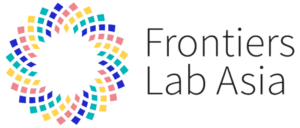04 Oct 2021
Across the Board

Perspectives and reflections from the Frontiers Lab Board Members
When designing the Frontiers Lab Asia (FLA) program, we knew that the knowledge and perspectives of leading foundations and entrepreneurs themselves would offer a huge amount of value to the team. We also wanted to balance local insights with global perspectives. Lastly, in order to hold us and our teams accountable to alignment with the SFI gender strategy and the broader principles of diversity, equity and inclusion, we wanted a diverse group of advisors.
This led us to establish two Advisory Boards for FLA- one composed of representatives from some leading foundations and another of established entrepreneurs from across the region.
Made up of individuals from ten organisations, the Board offers a broad range of expertise, from governance and international development, to philanthropy and investment, to entrepreneurship and service delivery on the ground.
We recently caught up with Lily Yu from the Sasakawa Peace Foundation (SPF), Stuart Thomson from the Good Business Foundation (GBF), Aria Widyanto from Amartha, and Harry Devonshire from Argidius Foundation to hear about their experiences as members of the Board.
Testing a principle of collaboration
As organisations tend to compete for financial resources rather than collaborate, Frontiers Lab Asia was an opportunity to explore what collaboration could achieve. Here are some of their reflections on this:
“One reason for the interest in the FLA model is that it is essentially developing a proof of principle that a collaborative approach to problem-solving can yield more ambitious and innovative solutions, which in turn leads to better outcomes for entrepreneurs, ESOs and investors in Asia,” says Lily. “This systems-level approach to transforming the efficiency of ecosystem building can only be achieved if leading organisations align and prioritise problems and then collaborate to test and iterate in the field.”
When looking at the program as a whole, Harry was struck by the opportunity that it offered. “Here is a program testing out intentional and highly facilitated collaboration as a means to identify and address challenges in entrepreneurial ecosystems. That is a valuable question,” he says, “and the FLA program was a good chance to find out!”
Stepping back a little, Stuart recognised the importance of collaborative approaches like FLA at a global level. “Beyond COVID we face other serious challenges of rising inequality and climate change,” he says. “These are often wicked problems that can only really be solved through game changing, and disruptive, ideas and practices that can be shared and scaled.”
It’s all about the people
The calibre of the people in the (virtual) room also played a huge role in making the program a) enticing and b) enjoyable for the Board members.
“What really tipped it over were the people involved,” says Stuart. “I had spent the previous 18 months working with personal and professional contacts to find the best people to work with in the Asia-Pacific on the issues of inclusive economic development in establishing the GBF. I had, through those contacts, gathered a group of vetted people to work with. Then when I went to my first FLA session all those people were there. I could have easily just waited to join FLA but if I had I wouldn’t have realised the powerful, diverse and passionate group of people FLA had collected within its network. That is the reason why I joined and continue to be excited by the work of FLA.”
For Lily, her decision to get involved was informed by positive past experiences with the team. “SPF has had productive past and ongoing collaborations with DFAT and partners, SecondMuse, ygap and convenors.org,” she says. “Including the co-creation of the GLIA toolkit, to support ESOs and SGBs to apply a gender lens to their work. I was excited to be a Frontiers Lab Asia board member to have another opportunity to work with talented and passionate practitioners, designers and investors within the FLA network.”
As one of the participants of the Frontiers Innovators program, Aria’s connection with the Frontiers Lab network goes back almost five years. “Post the FLA portfolio event, I was contacted by long-lost contacts from Frontier Innovators. We have kept in touch, and are now continuing to discuss impact measurement and metrics integration which is relevant to my business case. I am happy to see the Frontiers programs develop into various initiatives that reach out to multiple layers of stakeholders.”
Harry had also been part of an earlier program and had liked what he saw. “I’d joined a few Frontier Incubator sessions to both learn about interesting work in, and bring Argidius learning to, a region where we had limited exposure. The sessions were fun, well run and interesting, and I saw the board invitation as an extension of this.”
Up for the challenge
Stuart sees the role of the Frontiers Lab Board as perhaps the most challenging but also the most rewarding. “It was both understanding and then advising DFAT and the project groups on specific issues. The network was very collegiate which was fantastic,” he says. “But I also realise my role was to ask difficult questions so it helped sharpen the project and potential outcomes. I hope!”
For Harry, assessing the effectiveness of the program as a whole was one of the biggest challenges of his role. “The project period is only a year,” he notes. “So ensuring there is the ability to follow up on successes over the following years will be important.”
Stuart is also thinking about the next steps of the program and highlights that “there is still only a small pool of potential funders/investors for the incredible work that is going on. This is a major challenge but one that can be overcome. The good news,” he says, “is that impact investors and mainstream business groups are starting to turn their attention toward the need for more inclusive economic development. This is both because it is morally right but also that it is showing that it is good for business.”
The long-term sustainability of the solutions is also an area of focus for Lily. “One measure of success will be ensuring that the target end users for each of the five solutions are reached at scale,” she says. “Helping more end users to test and adopt the solutions will lead to more evidence on the utility of each solution, which in turn will hopefully provide information on the power of this highly collaborative approach. This information can help other funders and partners to understand the value of this region-wide problem-solving model and potentially aid the creation of additional partnerships to support longer-term sustainability.”
Collaboration done right
Not without its challenges, Frontiers Lab Asia has shown what intensely-collaborative problem-solving can look like.
“Once a shared vision was in place,” says Lily, “it was amazing not only to witness ambitious ideas being formulated but the actual conversion of ideas into prototypes that were being trialed in the field within a matter of months. I could see first-hand how applying design ‘sprints’ to development projects could yield lots of learnings and aid refinement of solutions design. This program provides evidence for the notion that if you bring the right minds together – very innovative solutions can materialise!”
“I feel the warmth and continuous support from the Frontiers ecosystem,” says Aria. “And I hope everyone here can also keep connecting to each other. Through these connections we can not only learn, but also contribute as a member of society.”
“Through diversity brings strength,” says Stuart. “I feel the process and those leading it did a good job in trying to equalise power imbalance in different ways so that ideas and opinions were shared meaningfully and in a respectful manner.”
“I think FLA was set up to drive innovation and new ideas,” he adds. “I think the project teams in particular delivered on that brief. But now what? How can they be actually and meaningfully supported? FLA is almost challenged by its success.”
We are so grateful to all of the Frontiers Lab Asia Board members for their dedication and support throughout the past nine months. The solutions, and the program as a whole, have been made far richer and more impactful because of your contribution. Thank you!

Lily Yu
Senior Advisor, Asia Women Impact Fund and Gender Investment and Innovation Department at the Sasakawa Peace Foundation
Lily coordinates SPF’s Impact Strategy, Research and Program Development relating to Gender Lens Investing, inclusive entrepreneurship ecosystem development and Women’s Entrepreneurship with a focus on sustainable solutions. Lily’s background is in research and consulting with a focus on innovation, technology and education.

Stuart Thomson
Executive Director of the Good Business Foundation (GBF)
Stuart has an extensive career working within the Not-for-profit sector holding senior leadership positions with organisations such as World Vision, Oxfam and East Timor Hearts Fund. Stuart also played a leadership role in the establishment of the National Disability Insurance Scheme (NDIS).

Aria Widyanto
Director and Chief Risk and Sustainability Officer (CRSO) of Amartha
Aria believes that microbusinesses can be modernised with technology. Prior to joining Amartha, he worked at Bank of Tokyo-Mitsubishi UFJ and Citibank. He received an YSEALI award from President Barack Obama in 2015 and an International Alumni Impact Award in 2017.

Harry Devonshire
Evaluation and Learning Manager at Argidius Foundation
Harry is a philanthropy, international development and sustainability practitioner seeking the abolition of poverty and the realisation of sustainability. He manages Argidius’ monitoring evaluation research and learning agenda, as well as grantees working to improve recruitment development and retention of talent in SMEs.



